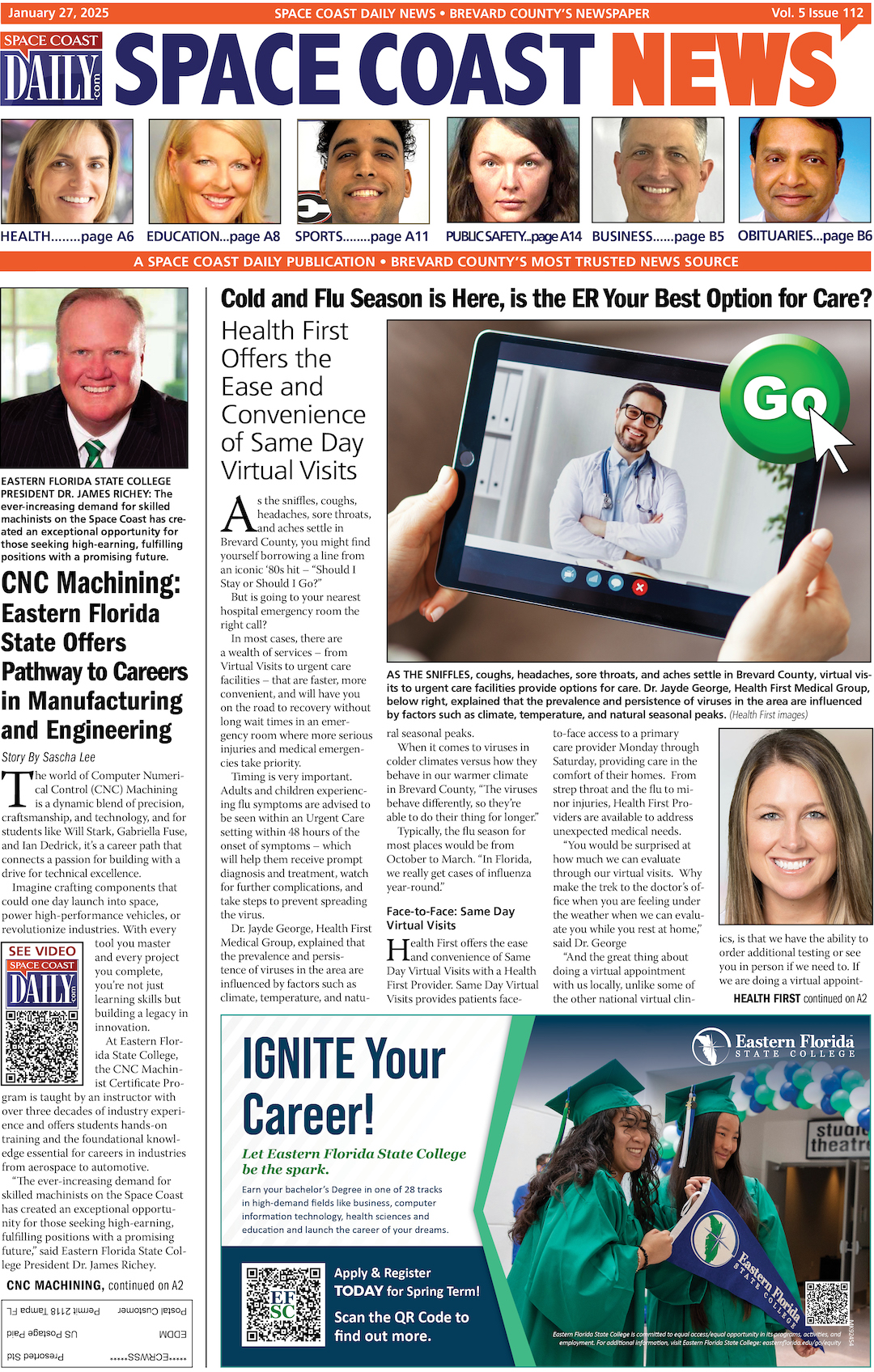Embracing Life After a Divorce
By Space Coast Daily // February 29, 2024

The vow ‘till death do us part’ is one most couples take seriously. They expect to spend the rest of their lives with their partners, however, this isn’t always the case. With the number of divorces on the rise, you’d think someone would’ve created a roadmap for moving forward in life afterward.
Unfortunately, there aren’t any set guidelines; every divorce is different and some people can move forward easier than others. Embracing change and moving forward after divorce is rarely easy, but it’s possible. However, you’ll need to have the right mindset and be willing to accept the change.
Tips on How to Move Forward After a Divorce
On average, about half of all marriages end in divorce. Yes, this is a depressing statistic and can have you questioning why even go through a marriage in the first place. After all, the odds are that you’re going to end up in divorce court. Even with these statistics, the number of couples getting married is on the rise. These couples are in love and positive their marriages will last.
You plan your life around your marriage—you expect to be partners throughout life, so when one spouse asks for a divorce, it can be traumatic for everyone involved. Suddenly, your grand plan for life is in tatters, and now you have no idea of what your life is supposed to look like going forward.
Embracing life and moving forward after a divorce is rarely easy, but it is possible, especially if you follow some helpful advice.
Learn and Practice Self-Forgiveness
Forgiving others is almost second nature; you’re taught throughout life not to hold a grudge and let the past stay in your rearview mirror. While it’s relatively easy to accept someone’s apology, it’s a little different when it comes to yourself.
Treating a divorce as a failure is normal, and it’s also part of the healing process. However, don’t spend hours a day wondering what’s wrong with you. Chances are, your divorce isn’t the direct result of your actions. Your former partner probably also shoulders some of the fault.
Take some time to examine your issues; everyone has some so don’t be embarrassed. Acknowledge your faults, create a plan to work towards self-improvement, and put it into action. Forgiving yourself for your faults is a little easier when you start working on improving them.
Find Support
Don’t wallow alone in your grief over a failed marriage. Keep in mind that you’re definitely not alone. Chances are, you know someone who’s been through a divorce. Lean on them for a little emotional support. Talk to them about your feelings; they’ve probably experienced similar ones.
Don’t know anyone who’s gone through a divorce? No worries, you can also join a support group. Whether you find a support group in your neighborhood, church, or online, just having others to talk to can make it easier to move forward with your life.
Something else to consider is finding a therapist. Talking one-on-one with a therapist can help you make peace with your divorce. Once you’re at peace, it’s easier to move forward and embrace life.
Create a Post-Divorce Checklist
Your emotions are probably all over the place. Some days, you accept your marriage is over, and at other times, you’re depressed or angry. While this is normal and you need time to deal with your emotions, life is moving forward, and there are a few loose ends you probably need to tie up.
To help ensure you don’t forget anything, it’s a good idea to make a post-divorce checklist. This list typically includes the little details that can get lost after a major life change. What should you include on your checklist? Here are a few suggestions to help guide you:
■ Change your last name, which typically means a visit to the Social Security office
■ Update your banking information. For example, the account holder’s name and debit/credit card information. You’ll also want to close any joint accounts.
■ Revise your will, estate plans, and life insurance beneficiaries
■ Reconfirm any custody agreements, if applicable
■ Create a post-divorce budget and possibly meet with a financial planner
This is also the time to wrap up any leftover legal paperwork and request a copy of the final, certified divorce decree. You may not be ready to look at the divorce decree, but this is paperwork you’ll want to keep in your important documents file.
Sometimes, creating a checklist can also be therapeutic. This checklist is often a first step towards embracing life after a divorce.
Prepare Yourself for the Loss of Friends and Family
Unfortunately, you and your former partner aren’t the only ones affected by the divorce. There’s a good chance you’re also going to lose some friends and family members, and the family is typically your in-laws.
Even if you and your former partner share children, there’s a good chance the relationship with your in-laws will be noticeably different. If there aren’t any children involved, you’re probably not going to have any reason to stay in touch with your spouse’s family.
Your friends may also take sides, even if the divorce is amicable. Some friends will choose your former spouse and others will stick in your corner. Losing friends is always painful, but it’s also an unfortunate reality of a divorce. Say a sad farewell to these friends and remember you still have people who care about your wellbeing.
Embrace Your Freedom
A marriage is a partnership and this can mean giving up some things you love or have always wanted to try. This is the perfect opportunity for you to get out and start crossing some items off of your bucket list.
Whether it’s traveling or simply joining a book club, get out and take the chance. You can start living life on your terms, and sometimes this is the best way to move forward after a divorce.
Live Your Best Life After a Divorce
Adjusting to life post-divorce is indeed a process that requires patience and self-compassion. It’s important not to rush your healing or ignore your emotions. Giving yourself permission to feel and express your emotions is crucial. Engaging in conversations with friends, family, or a support group can provide comfort and perspective.
As you navigate this transition, gradually shift your focus toward the future. Begin to outline personal goals and interests that resonate with your individuality and newfound independence. Taking small steps to establish a life aligned with your desires and values can foster a sense of empowerment and optimism for the journey ahead












